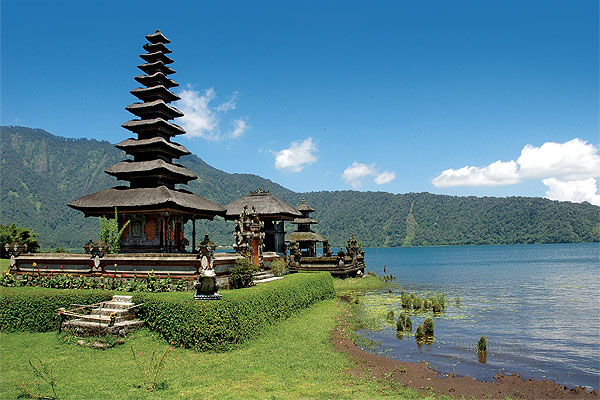The types of property ownership available, such as freehold and leasehold, need to be understood clearly to make informed decisions.
Acquiring hotel property in Bali is a venture that attracts many due to the island’s thriving tourism industry. However, it is critical to approach this investment with a clear understanding of the legal framework that governs property ownership in Indonesia. Foreign investors, in particular, need to navigate the various restrictions and guidelines put in place, as Indonesian property law is quite specific about who can own and control land. Getting to grips with the distinction between ‘Hak Milik’ (freehold) and ‘Hak Pakai’ (right to use) is foundational for interested parties to ensure that their investments are secure under Indonesian law.
A pivotal step in the process is conducting thorough due diligence. This involves scrutinizing the hotel’s operational and financial performance, the legitimacy of property titles, and the implications of local zoning laws which may affect future property use. Investors must also engage with reputable legal consultants and notaries, who play a crucial role in the preparation and review of all legal documents, to safeguard the transaction. Engaging with professionals ensures compliance with legal requirements and the proper registration of property transfer with the relevant authorities. For those interested in Bali hotel investment opportunities, consulting with local real estate experts can provide valuable insights and assistance throughout the acquisition process.
Understanding legal framework and ownership types
When acquiring hotel property in Bali, understanding the Indonesian legal framework and property ownership types is essential. These aspects dictate the methods and limitations faced by foreign investors, including various forms of property rights such as freehold, leasehold, Hak Pakai, and regulations surrounding foreign-owned companies.
Overview of Indonesian legal system
The Indonesian legal system is a civil law system with influences from customary law known as adat. In the context of property law, it provides specific types of rights called Hak Milik and Hak Pakai for land ownership. Hak Milik — translated as freehold — is the strongest form of land right and is generally unavailable to foreigners. In contrast, Hak Pakai (right to use) allows an individual or a corporation to use and/or build on someone else’s land. This right is typically granted for a certain period, with an extension option.
Types of property ownership in Indonesia
There are several types of property ownership in Indonesia, crucial for foreign investors to understand:
- Freehold (Hak Milik): Exclusively available to Indonesian citizens.
- Leasehold (Hak Sewa): Valid for a set term (often 25 years, extendable) and applies to both Indonesians and foreigners.
- Right to use (Hak Pakai): Can be held by Indonesian entities or by foreign residents, and can be used for an initial period of up to 25 years, extendable up to 70 years.
For Hotel property investments, it is common to use either leasehold or Hak Pakai structures.
Restrictions on foreign ownership
Foreign ownership of property in Indonesia comes with several restrictions to protect domestic interests. Foreigners are not allowed to hold Hak Milik but can legally hold Hak Pakai through a legal entity in Indonesia, such as a PT PMA (foreign-owned company). Hak Pakai is granted for an initial 25 years and can be extended up to 70 years. It permits the lease of property for residential purposes to foreigners who reside legally in Indonesia.
Note: Foreign investors often form a PT PMA to navigate the foreign ownership restrictions, allowing for broader investment opportunities and certain property rights traditionally reserved for Indonesian citizens.
These legal distinctions and ownership types shape the strategies employed by foreign investors when entering the hotel market in Bali. It is crucial to engage with knowledgeable legal experts to navigate these complexities.
Conducting due diligence and securing transactions
Acquiring a hotel property in Bali requires meticulous due diligence and a secure transaction process to ensure legal compliance and financial prudence. The purchaser must navigate through the intricate property market and legal landscape of Bali specifically.
The importance of due diligence
Due diligence in Bali’s property market is essential in verifying the hotel’s legal standings and operational health. Professionals such as lawyers and notaries are pivotal in uncovering any hidden liabilities or compliance issues. They ensure the land certificate is valid, the ownership structure complies with Indonesian law, and the property is registered correctly, avoiding future legal disputes.
Legal and financial considerations
The intricate laws of Bali necessitate detailed legal advice to navigate permits, taxes, and legal requirements specific to property acquisition. A thorough review of the sales and purchase agreement by a lawyer safeguards the buyer’s interests. Financial assessments include verifying the price against current market rates, ensuring a transparent and justified investment. Buyers should secure a professional real estate agent to gain insight into fair market value and investment potential.
Finalizing property acquisition
Once due diligence is complete, the payment and signing of the sale and purchase agreement formalize the transaction. A deposit secures the buyer’s intent, and comprehensive checks by a notary ensure the acquisition abides by the necessary protocols. Securing official permits and fulfilling payment schedules mark the final steps in acquiring a hotel property in Bali, officially transferring ownership and operational control to the buyer.
Conclusion
In securing a hotel acquisition in Bali, investors must undertake a thorough property examination, including a review of all relevant legal documents. Negotiation plays a vital role, ensuring the terms of sale are favorable and clearly defined. Furthermore, compliance with Bali property regulation is not optional; it’s a mandatory step to prevent legal repercussions. The types of property ownership available, such as freehold and leasehold, need to be understood clearly to make informed decisions, thereby safeguarding the investment for the long term.

























































































































































































